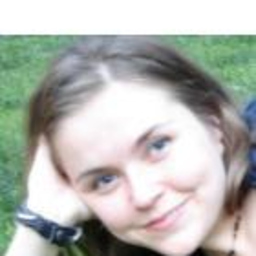Eva Haralanova
Abschluss: PhD, Department of Psychiatry and Psychotherapy, RWTH Aachen University, Germany
Aachen, Deutschland
Werdegang
Berufserfahrung von Eva Haralanova
1 Jahr und 11 Monate, Okt. 2004 - Aug. 2006
Student research assistant
Department of Psychiatry, University Hospital Munich, Germany
4 Jahre, Okt. 2000 - Sep. 2004
Student research assistant
University Hospital for Neurology and Psychiatry “St. Naum”, Sofia, Bulgaria
1 Monat, Jan. 2002 - Jan. 2002
Student research assistant
Equilibriumetric laboratory, Neurootological Research Institute, Germany
2 Monate, Okt. 2001 - Nov. 2001
Student research assistant
Equilibriumetric laboratory, Neurootological Research Institute, Germany
3 Monate, Okt. 1997 - Dez. 1997
Student research assistant
Head Center, Department of Neurology, University Hospital Würzburg, Germany
Ausbildung von Eva Haralanova
8 Monate, Apr. 2007 - Nov. 2007
Clinical, Social-Cognitive and Affective Neuroscience
Brain-Behavior Center, Department of Psychiatry, University of Pennsylvania, USA
2 Jahre und 5 Monate, Sep. 2006 - 2009
Psychology, Clinical, Social-Cognitive & Affective Neuroscience
Department of Psychiatry and Psychotherapy, RWTH Aachen University, Germany
program within the “International Research Training Group (IRTG) Brain-behavior relationship of normal and disturbed emotions in schizophrenia and autism” http://www.irtg-schizophrenia-autism.de
2 Jahre, Okt. 2004 - Sep. 2006
Neuro-Cognitive Psychology
Department of Psychology, Ludwig-Maximilians-University of Munich, Germany
Experimental procedures for the measurement and imaging of neuro-cognitive functions and their disorders. The Neuro-Cognitive Psychology is an emerging field at the intersection of Experimental Psychology and the Cognitive Neurosciences. The program is international and interdisciplinary embedded in
4 Jahre, Okt. 2000 - Sep. 2004
Psychology
Department of Psychology, Sofia University, Bulgaria
Sprachen
Englisch
Fließend
Deutsch
Gut
Russisch
Gut
Französisch
Grundlagen
Bulgarian first language
-
